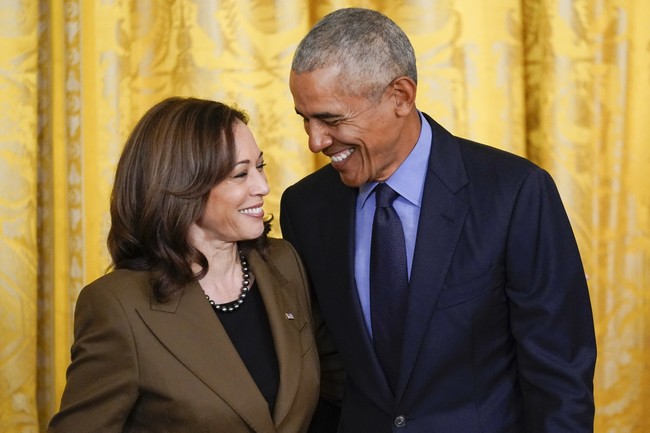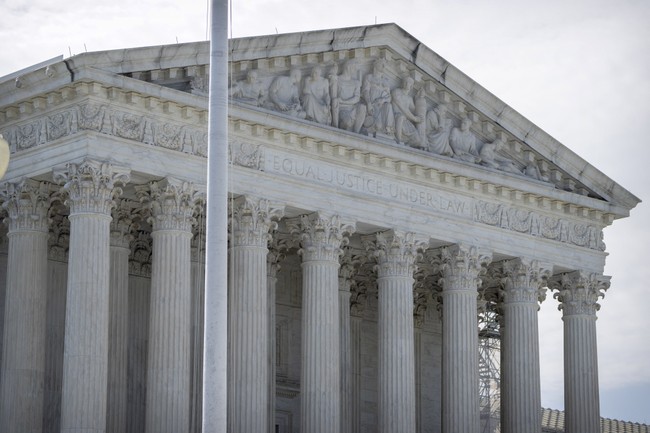An old Washington DC saying warns: Personnel is policy. And if so, we now have a very good insight into what direction Kamala Harris will take American policy on Israel and Iran. So do the Israelis — and they are not happy about it.
Harris has chosen Ilan Goldenberg as her “Jewish community liaison,” a move covered by Israeli media but barely mentioned in the US. The Atlantic offered it as a nugget in a broader look at a potential Harris presidency foreign-policy plan. They pointed out that Phil Gordon’s presence already points to a more Iran-oriented policy in the Middle East, and Goldenberg fits neatly into that paradigm, having helped construct Barack Obama’s policies as well:
Of course, a President Harris would have not one foreign-policy adviser but a full array of them, spanning the military, diplomatic, and intelligence communities. And one more name has emerged in the past week: Ilan Goldenberg, an Israeli American Middle East hand who has advised Harris on the region throughout her vice presidency. Harris has appointed him her liaison to the Jewish community and tasked him with advising her campaign on Israel, the war in Gaza, and the broader Middle East.
Goldenberg’s profile is similar to Gordon’s, in that he is not an ideologue so much as a policy professional who served the Obama administration in top Middle East–related positions in the Pentagon and State Department. He has long advocated for a two-state solution to the Israeli-Palestinian conflict. He supported the Obama administration’s Iran policy, but after the nuclear deal was signed, Goldenberg also called for smoothing relations with Saudi Arabia and other Persian Gulf states that had been unnerved by the administration’s focus on Iran. This concern wasn’t shared by many Democrats at the time.
It’s safe to say that the Israelis have paid a lot more attention to Goldenberg’s appointment, and that they do not see it as some sort of moderating influence on Gordon. In fact, they see it more as a hardening of an approach hostile to Israel and aimed at currying favor with the Iranians. The Jerusalem Post’s analysis walks through Goldenberg’s lengthy career and positions, and they wonder whether American Jews want that kind of approach too:
Vice President and presumed Democrat presidential candidate Kamala Harris’s Jewish community liaison is a fierce advocate of the 2015 Joint Comprehensive Plan of Action Iran nuclear deal, a harsh critic of Israeli settlement activity and the US Jerusalem embassy move, and a defender of the Palestinian Authority against efforts to defund it over financial support for terrorism. …
As American Jews have expressed concern about the Democratic Party’s commitments to the Jewish community’s concerns in the wake of the October 7 Massacre, it remains to be seen if Goldenberg’s positions and policies will align with their temperament and guide Harris to restore diplomatic channels to American Jewry. •
A couple of these points should be noted in specifics. Goldenberg publicly opposed Donald Trump’s move of the US embassy to Jerusalem and to recognize Israel’s annexation of the Golan Heights, saying that they would interfere with efforts to build an Arab-Israel peace:
As a member of a peace negotiation team during Obama’s tenure, Goldenberg’s focus has often been the objective of a two-state solution between Israelis and Palestinians. Goldenberg’s vision of a two-state solution would be based on pre-1967 lines with mutually agreed-upon land swaps, both nations’ capitals in Jerusalem, and a demilitarized Palestinian state. …
Goldenberg, in a 2019 Politico article, called Trump’s recognition of Israeli control of the Golan a “fiasco” that would undermine Arab-Israeli rapprochement efforts and the regional view of the US. Goldenberg also opposed Trump’s move of the US embassy to Jerusalem. While it would reassure Israelis about their place in the world and dismiss the idea that Jerusalem was not and would not be the capital of Israel, Goldenberg said in Politico in 2017 it threatened to stir the pot by not acknowledging Palestinian claims and inciting religious tensions. Goldenberg called to match the move by opening a Palestinian embassy in Jerusalem and recognizing a Palestinian state.
So what actually happened after those Trump moves? His team created the Abraham Accords, in which a number of Sunni Arab states normalized relations with Israel. That would have been completed under Joe Biden with Saudi Arabia, in fact, had Hamas not launched the October 7 atrocities and started a war. That was likely the reason that Hamas attacked at that time in such a barbaric fashion as to force Israel into an all-out war. Even so, the Saudis are still on board to normalize relations with Israel as soon as the war ends.
It turned out that the Arab nations didn’t care as much as Palestinian feelings as they did about Iranian attempts to dominate the region, something that would have been readily discernible for anyone not caught up in ideological fervor.
It’s not just that Goldenberg is wrong, Jerusalem Post editor Zvika Klein argues in a separate essay. It’s that he and his clique are openly hostile to Israel. And his appointment “should alarm every friend of Israel,” Klein warns:
Goldenberg’s career has been built on a specific ideological foundation: a deep, almost dogmatic, belief in the power of diplomacy, even with the most duplicitous of regimes, and a marked skepticism toward any show of strength by Israel. He’s the kind of man who, when faced with a roaring fire, would argue for a drop of water rather than a fire hose, fearing that the latter might cause too much of a splash. …
For Israel, surrounded by enemies who dream of its destruction, such half-measures are not just inadequate – they’re dangerous. The October 7 massacre occurred as a result of Iran becoming almost untouchable by the West, and the country’s support of its proxies on all fronts. Let’s face it: the JCPOA failed.
Goldenberg’s ideology doesn’t stop at his misguided approach to Iran. Starr also highlighted how he has been a relentless critic of Israeli settlement activity, viewing this as the primary obstacle to peace in the region. In Goldenberg’s world, the construction of homes in Judea and Samaria is a sin so grave that it warrants “strong measures” from the United States to deter Israel from continuing.
The danger of Goldenberg’s approach extends to the whole region, including the Sunni Arab nations that aligned with Israel against Iran in the Abraham Accords:
Goldenberg’s broader vision for the Middle East is no less flawed. Starr quoted his views, which called for a decreased American footprint in the region and which argued that the US can achieve its goals without relying on military force. This might sound appealing to those weary of endless wars, but it’s dangerously naive. The Middle East is not a region where power vacuums remain empty for long. If the US steps back, Iran, Russia, and extremist groups will rush in with catastrophic consequences for Israel and American interests alike.
That is the hallmark of Barack Obama’s foreign policy in the Middle East, too. His fecklessness allowed Russia to fill some of the vacuum left when Obama pulled out of Iraq in a strategy almost identical to Biden’s policy in Afghanistan, only better managed. In both Iraq and Afghanistan, the vacuum was also filled by radical Islamist terror armies, and the JCPOA allowed billions of dollars to flow into Iran and then out to its terror-army proxies.
Kamala Harris will bring us a continuation of Obamaism in the Middle East. Its third term in control of US policy has proven a disaster to Israel, and a fourth term under the incompetent leadership of Harris would be even worse. Small wonder Israelis are sending up alarms over the Obama clique’s co-opting of Harris’ nascent foreign-policy team … and small wonder American media aren’t talking about it at all.
Read the full article here




![Monkeypox Found In San Francisco Waste Water After WHO Declared Emergency [VIDEO] Monkeypox Found In San Francisco Waste Water After WHO Declared Emergency [VIDEO]](https://www.rvmnews.com/wp-content/uploads/2024/08/2024.08.16-11.21-rvmnews-66bf364e9bb4f.jpg)
![Biden’s Push Against Women’s Sports and Biology Blocked by Court [WATCH] Biden’s Push Against Women’s Sports and Biology Blocked by Court [WATCH]](https://www.lifezette.com/wp-content/uploads/2025/01/2025.01.10-02.15-lifezette-67812b6a6a461.jpg)



![Trump Pledges Clarity on Mysterious Drones: ‘They Know’ [WATCH] Trump Pledges Clarity on Mysterious Drones: ‘They Know’ [WATCH]](https://www.lifezette.com/wp-content/uploads/2024/12/2024.12.20-02.29-lifezette-67657f31befac.jpg)